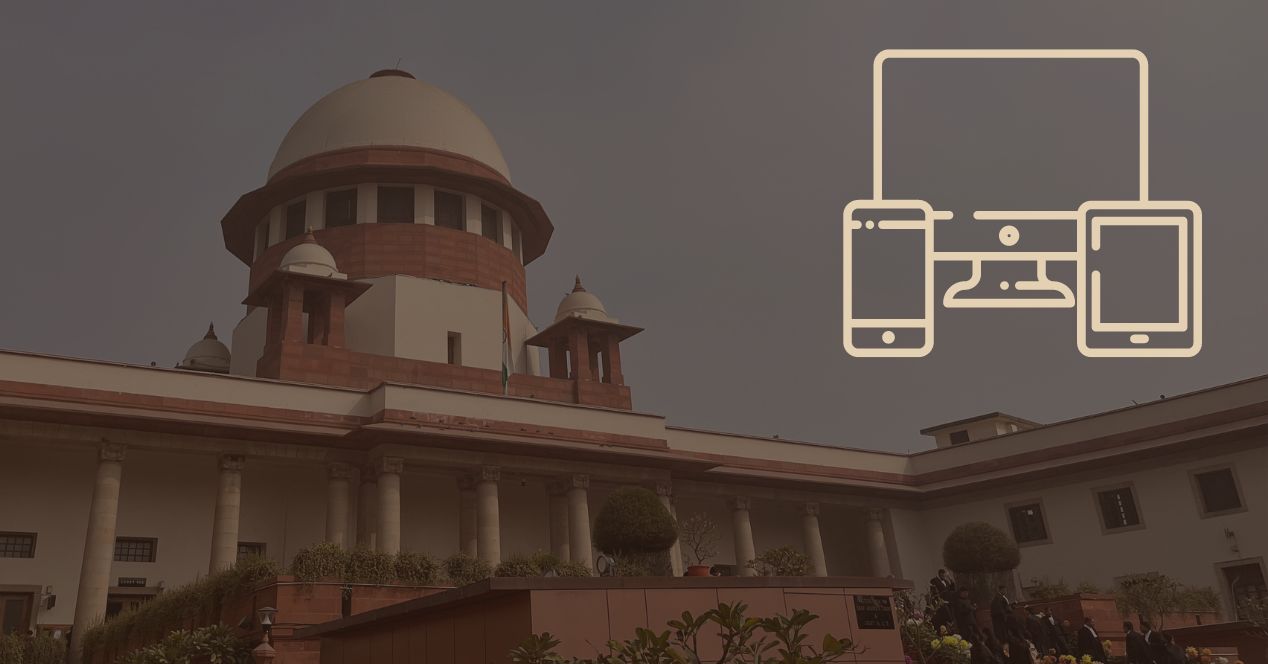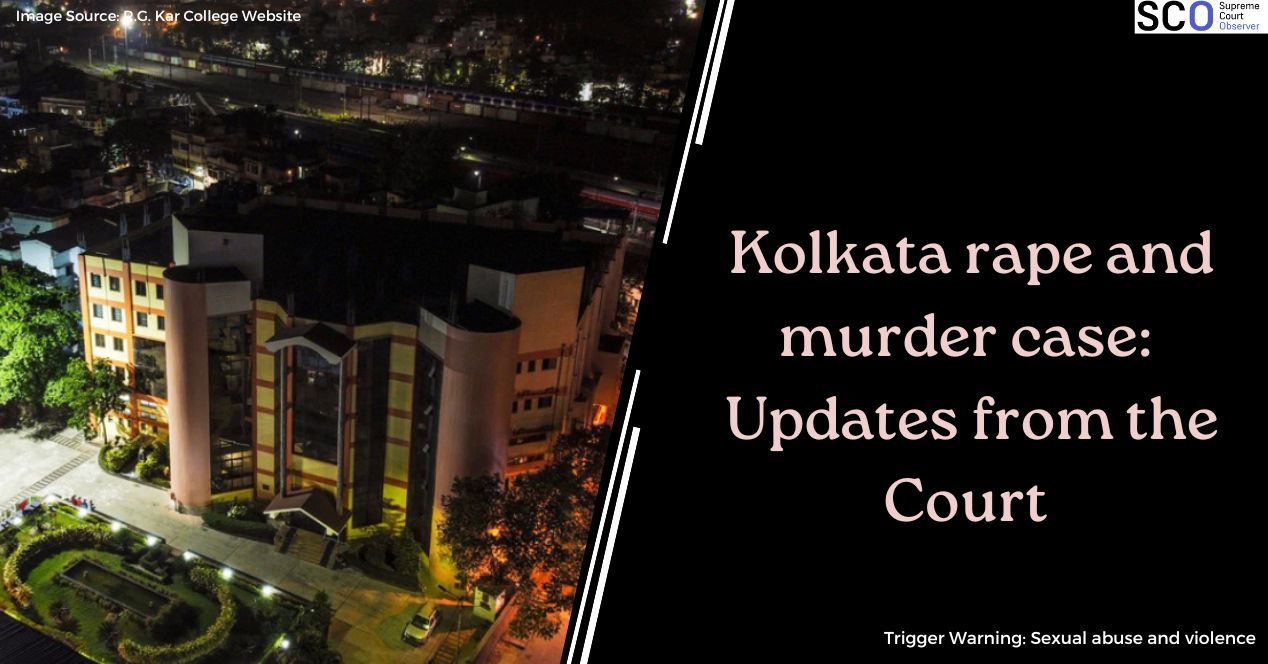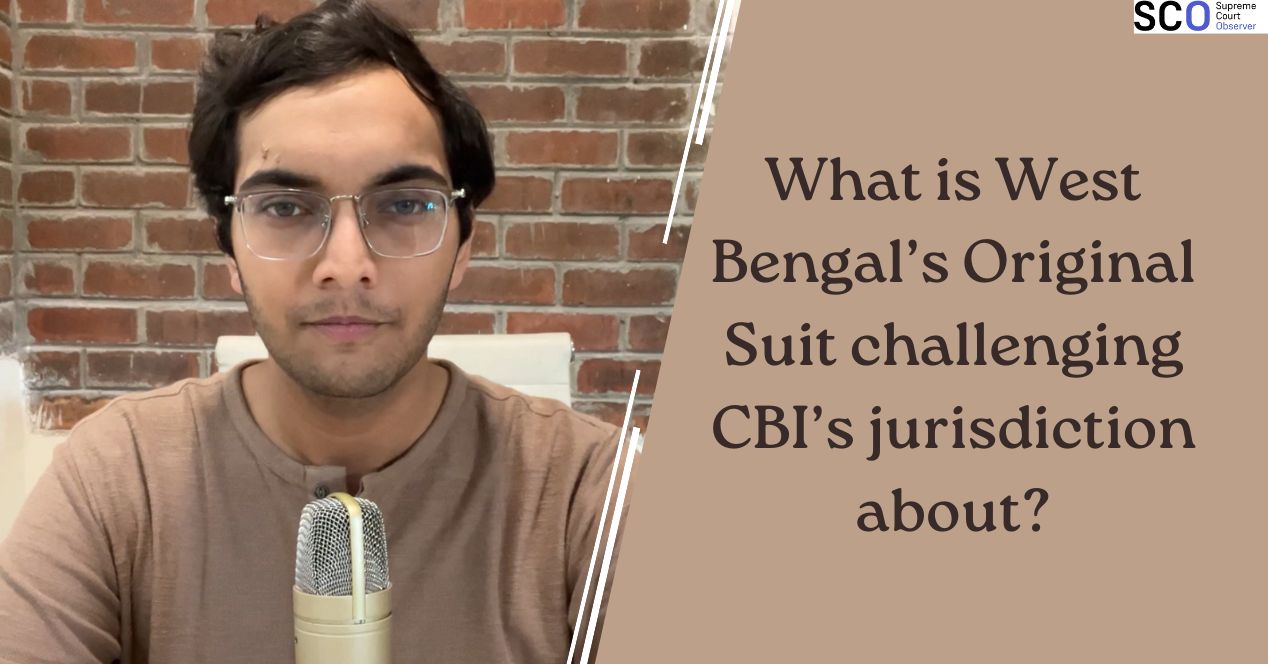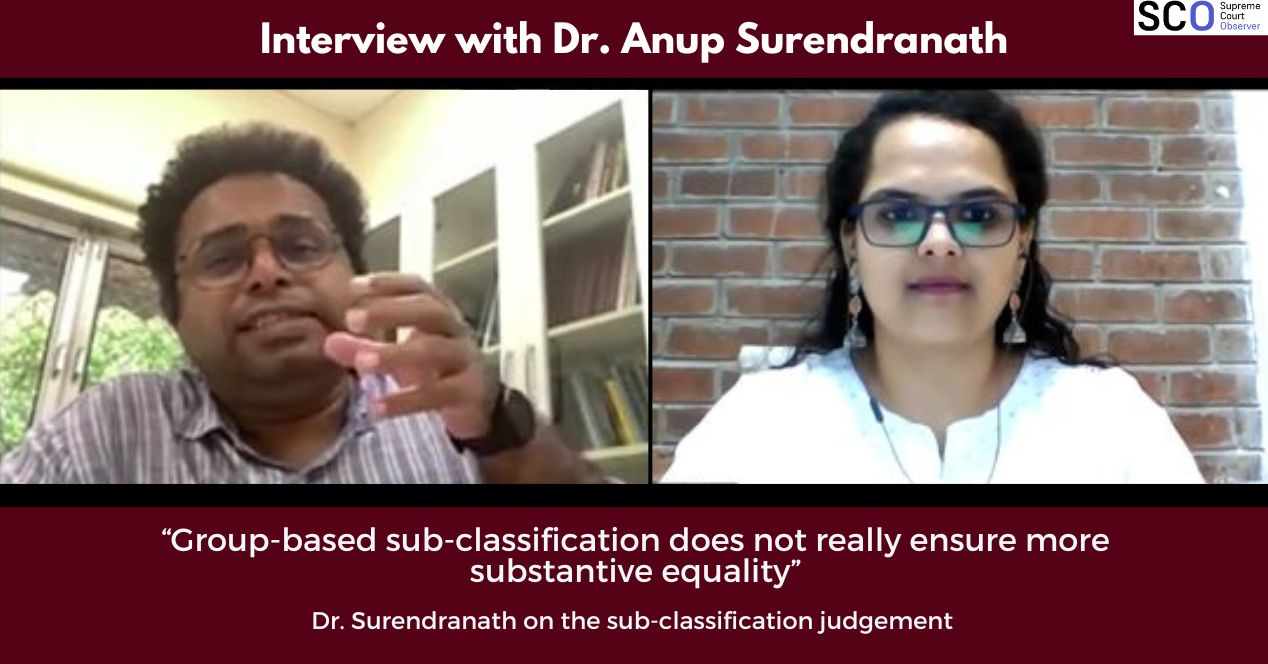Channel
Supreme Court’s landmark POCSO judgement
We explain the SC's landmark POCSO judgement stating that viewing material depicting minors engaged in sexual activity is an offence
Transcript:
Hello everyone,
Welcome to SCO’s channel.
I am Gauri Kashyap, and today we will be talking about a landmark Supreme Court judgment that held that viewing, possession, and storage of material depicting minors engaged in sexual activity is an offense.
The judgment was delivered on the 23rd of September by a division bench of Chief Justice D.Y. Chandrachud and Justice J.B. Pardiwala in a case titled Just Rights for Children’s Alliance v. S. Harish.
The decision brings closure to a longstanding split among high courts on whether mere storage of child pornography can be considered an offense under Section 15 of the Protection of Children from Sexual Offences (POCSO) Act, 2012, and Section 67B of the Information Technology Act, 2000.
With this decision, India joins an exclusive club of countries that have explicitly criminalized watching child pornographic material.
The judgment overturned the Madras High Court’s decision in S. Harish v. Inspector of Police and Another, which had quashed criminal proceedings against a POCSO accused, Harish, after finding that downloading or watching child pornography was not per se penalized under POCSO or the IT Acts.
First, we look at Section 15(1) of the POCSO Act. This states that any person who stores or possesses child pornography and fails to delete, destroy, or report it can be punished with a fine of up to ₹5,000. Upon a second offense, the fine increases to ₹10,000.
Section 15, clause 2, states that if possession and storage are with the intent of transmitting, propagating, displaying, or distributing, then there may be a higher punishment of up to three years of imprisonment.
Many high courts have interpreted this to mean that the intent to distribute or commercially use such content was essential for storage and possession to be considered an offense.
Now let’s move on to the Information Technology Act. Section 67B of the Act penalizes the publishing and transmitting of child pornography.
So how did the Madras High Court interpret these provisions to ultimately quash criminal proceedings against the POCSO accused?
On the 29th of January 2020, a cyber tipline report from the National Crime Records Bureau informed Tamil Nadu police that one S. Harish had been an active consumer of child pornography. An FIR was registered under the POCSO Act.
When Harish’s phone was analyzed by the Forensic Science Lab, two child pornographic videos were discovered. These videos had been recorded locally in Tamil Nadu, and investigations revealed that these were of children who had been missing for some time.
In September 2023, a charge sheet was filed against Harish under Section 15(1) of the POCSO Act and Section 67B of the IT Act.
When Harish approached the Madras High Court to quash the criminal proceedings in January 2024, the High Court held that mere possession or storage was not an offense. It ruled that Harish was not guilty under Section 67B of the IT Act either.
An NGO called Just Rights for Children Alliance appealed this decision in February 2024. They argued that as the judgment was widely covered by news outlets, it would create the impression among the general public that downloading and possessing child pornography is not an offense. This, they claimed, would increase demand for child pornography and encourage people to involve innocent children in it.
On the 11th of March, while hearing the appeal, the Chief Justice remarked that the High Court’s judgment was “atrocious.”
Justice Pardiwala, who authored the judgment, clearly outlined the scope of Section 15 of the POCSO Act. He stated that Section 15 provides for three distinct offenses that penalize either storage or possession of child pornographic material, depending on three separate intentions.
Each intention, as he explained, was addressed in each subsection of Section 15.
- Section 15(1) penalizes the failure to delete, destroy, or report child pornography in the possession of an accused person.
- Clause 2 penalizes the actual transmission, propagation, display, or distribution of such material.
- Clause 3 penalizes the storage or possession of child pornographic material when done with a commercial intent.
Justice Pardiwala explained that under Section 15, clause 1, particularly, mens rea (intent) is to be gathered from actus reus (action) of possessing the material but not reporting it. Each case would require looking into the facts and circumstances of how possession came about and why no disclosure was made.
By this interpretation, mere possession of child pornography, unless deleted, destroyed, or reported by the accused, is an offense under the POCSO Act.
Justice Pardiwala also clarified that each provision of Section 15 is independent of the others, which put an end to the alternative interpretation that high courts had developed, reading the separate instances of possession and distribution as making up a single offense.
Section 30 of the POCSO Act states that for any POCSO offense, the special court shall presume that the accused has a culpable mental state. If foundational facts are established prima facie, the burden is on the accused to show that they are not guilty.
For example, in this case, the prosecution only has to show the foundational fact that the accused was in possession of child pornography and did nothing to get rid of it or report it. The burden lies on the accused to establish their innocence.
The High Court noted that the presumption of culpable mental state is a factor that high courts should consider when deciding whether cases should be quashed. Justice Pardiwala wrote that high courts must be slow, circumspect, and exercise restraint in deciding whether a POCSO case should be quashed.
While interpreting Section 67B of the IT Act, the court clarified that Section 67B does not only penalize electronic dissemination, as per the Madras High Court’s interpretation, but also criminalizes the possession and consumption of child pornography.
Justice Pardiwala suggested a change in the way we speak about child pornography, particularly in the legal sense. The court observed that in cases of child pornography, the victimization of the minor starts with the sexual act but continues with the recording and perpetuation of the photos and videos, creating a ripple of trauma.
He suggested that the term child sexual exploitative and abuse material (CSEAM) was more appropriate than child pornography. He wrote that child pornography undermines the victimization because the term suggests a correlation to pornography, a conduct that may be legal, and involves voluntary participation and consent.
The judgment urges Parliament to consider amending the POCSO Act to substitute child pornography with CSEAM. It also directed all courts to stop using the term child pornography in judicial orders and judgments.
Noting that social media intermediaries play a significant role in the dissemination of child pornography, the court outlined their obligation to report the publication and circulation of such content under various laws—an obligation intermediaries have so far ignored.
The judgment reiterated Sections 19 and 20 of the POCSO Act, which impose an obligation on persons, media, hotel staff, hospital staff, clubs, and studios to report any child pornographic material. Section 21 states that failing to do so would result in imprisonment of up to six months.
The court also made a notable observation on Section 79 of the IT Act. Section 79, known as the Safe Harbour provision, protects intermediaries from liability for third-party information, data, or communication links available or hosted on their platform.
In this judgment, the court clarified that Safe Harbour protection does not apply to child pornography. If an intermediary is informed by the government that any information, data, or communication link hosted by them is used to commit an offense, they must expeditiously remove or disable access.
Next, the court directed the Ministry of Women and Child Development to implement comprehensive sex education programs to create awareness of the legal and ethical ramifications of child pornography. It also directed that victims of child pornography be provided psychological counseling, therapeutic interventions, and educational support.
It suggested that public campaigns on sexually exploitative materials should be organized and that at-risk young people with problematic sexual behavior (PSBs) be identified and supported by educators, healthcare providers, and law enforcement.
The court directed the Union Government to constitute an expert committee to devise a comprehensive program for health, sex education, and POCSO awareness among children.
The court has restored the criminal proceedings against Harish, whose trial before the fast-track court in Thiruvallur, Tamil Nadu, will now continue.
Thank you for watching SCO’s video explainer!
Like, share, and comment to let us know what you think about these latest developments.
Don’t forget to follow us on all major social media platforms, and of course, read our coverage of the Supreme Court on our website SCObserver.in.
Thank you for watching, and I’ll see you soon!




